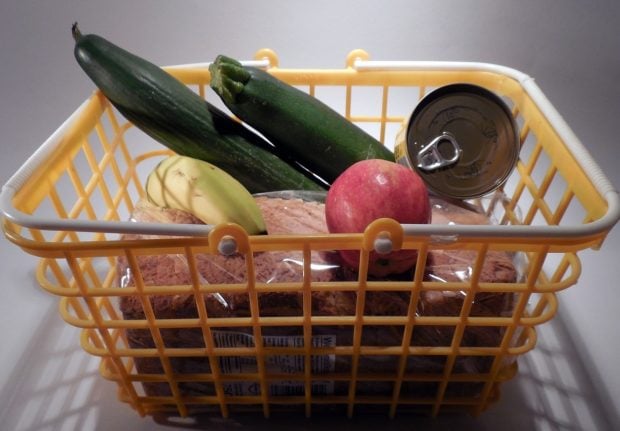By 109 votes to 79, the National Council accepted on Tuesday a motion to this effect from MP Philippe Nantermod, from the right-of-centre Liberal-Radical party (PLR).
Under the current labour law, working on Sundays — which includes retail personnel as well — is, in general, forbidden.
READ ALSO: What you need to know about working on Sundays in Switzerland
What is the newest motion pushing for?
It aims to modify the current legislation — though not in a way that would radically change Swiss practices, that is, by allowing unlimited Sunday opening of all stores, as is common in other countries (although there are similar laws in Germany and Austria).
Instead, MPs want to provide “disadvantaged regions” with the same modest ‘shopping rights’ that are already available in train and petrol stations, airports, and tourist regions, where small shops selling groceries and other essential items are open on Sundays.
This means that suburban areas, “which do not have any of this infrastructure and are deprived of a range of services that have become essential in our time,” should benefit from Sunday shopping opportunities, Nantermod said.
“It is difficult to justify refusing Sunday business to village residents on the pretext that they do not benefit from a petrol or train station, or live in an area that is not considered touristy.”
However, not everyone is happy about the proposed move
For the Unia trade union, “this seemingly innocuous modification aims to liberalise Sunday work,” it said in a press release.
“The motion is part of the bourgeois tactic which wants to deregulate ever more, instead of protect [workers’] health.”
“Sunday should not be established as a working day, ” it added.
What will happen next?
The planned changes aren’t set in stone yet. The Council of States will have to weigh in on this motion, and this is expected to happen in the near future.
However, Sunday store openings are hardly a new issue — it has been stirring controversy for more than a decade.
But it seems that this is not an urgent topic for Swiss voters, who have been regularly rejecting similar proposals that have cropped up on municipal and cantonal levels over the years.
READ ALSO:
- What is Switzerland’s plan to allow some shops to open on Sundays?
- Is Switzerland set to allow shops to open on Sundays?
In contrast to the Swiss, many foreign nationals have had to come to terms with no-shopping Sundays.
Quite a few international residents complain about not being able to shop on that day; as one disgruntled shopper shared in The Local’s reader survey in 2019.
“If there is a demand, there is business! Sunday looks dead with businesses closed – it’s stupid!” the reader wrote.
However, others like the idea of shop-less Sundays.
“Sundays with no shops open is one of the things I love in Europe,” one reader said. “Coming from a mall culture where all shops are open seven days a week and sometimes even 24 hours is just too stressful for me.



 Please whitelist us to continue reading.
Please whitelist us to continue reading.
Member comments